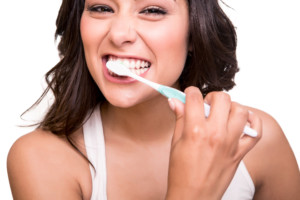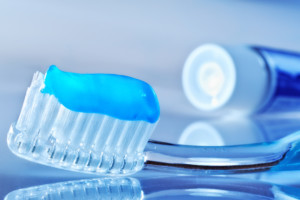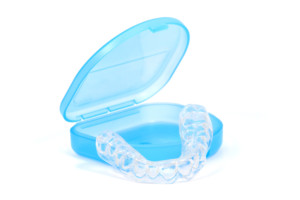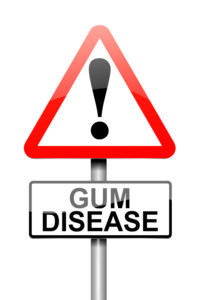Anyone who has sensitive teeth knows what a huge pain it can be. Not being able to eat ice cream in the summer or drink a warm cup of hot chocolate in the winter is no fun, and for some people, it’s much more severe than that.
A study by the International Dental Journal found that over 50 percent of adults between the ages of 20 and 50 report some level of tooth sensitivity. So what can you do to fix it? The first step is identifying why your teeth are sensitive in the first place.
What Causes Tooth Sensitivity?
Tooth sensitivity can come from a number of sources. According to the ADA, sensitive teeth can happen because of any of the following factors:
- Tooth decay (cavities)
- Fractured teeth
- Worn fillings
- Gum disease
- Worn tooth enamel
- Exposed tooth root
Some unlucky people are just born with sensitive teeth. But no matter the cause, there are several things you can do at home to relieve or lessen your tooth sensitivity. Here are 5 tips from Exceptional Smiles Family Dentistry for preventing and reducing sensitivity.
1. Use Proper Brushing Techniques

Brushing your teeth correctly is the first step to preventing many dental issues. Applying too much pressure, using the wrong type of toothbrush, or brushing right after eating acidic foods can wear away your enamel, which is the protective coating on your teeth. The thinner your enamel is, the more sensitive your teeth will be.
Check out this blog post on perfecting your dental hygiene routine for more tips and information.
2. Try A Desensitizing Toothpaste

There are several different kinds of toothpaste available that are made specifically for people who have sensitive teeth. Most of them contain an active ingredient such as strontium chloride or potassium nitrate that works by blocking the pain signals to the nerves inside your teeth. When using these products, it’s important to remember that it may take up to a month of regular use to feel the effects, so don’t give up if it doesn’t start working right away.
3. Wear A Mouthguard At Night

Sometimes, tooth sensitivity can be caused by grinding your teeth while you sleep or when you’re nervous. Just like brushing too hard, tooth grinding wears away your enamel and decreases your built-in defenses against sensitivity. Try wearing a mouthguard or changing your sleeping position at night, and if you catch yourself clenching or grinding your teeth during the day, make an effort to stop right away.
4. Treat Periodontal Problems

If proper brushing and desensitizing toothpaste don’t work, your sensitivity could be caused by an untreated issue with your gums. Receding gums expose the root of your tooth and can cause pain and sensitivity. A restorative procedure that addresses gum disease can have a huge impact on sensitive teeth. Visit our website to learn more about the periodontal treatments we offer.
5. Ask Dr. Eye About A Fluoride Treatment

Fluoride can either be applied as a varnish that’s painted onto the surface of your teeth or a gel or foam inside plastic mouth trays that you wear for 3-5 minutes. These treatments can help to strengthen your enamel, which in turn reduces tooth sensitivity. Ask Dr. Eye about a fluoride treatment at your next cleaning, or call us at (540) 434-5500 to schedule an appointment today.

